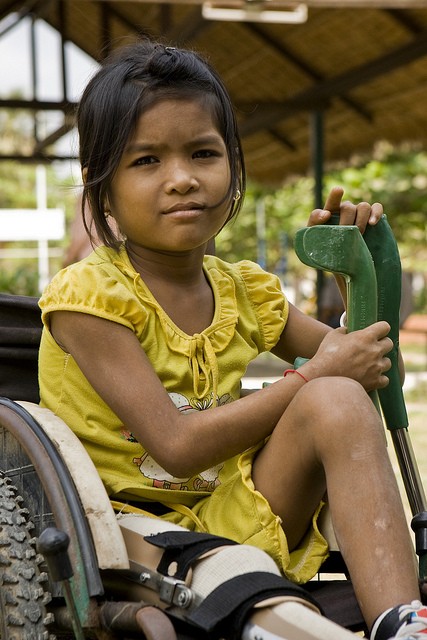Spreading Poliovirus Raises International Alarm

Polio has reportedly spread from three countries, spurring world health officials to call for a coordinated effort from the countries affected as well as world powers to stop the virus from crossing any more boarders.
Pakistan, Cameroon, and the Syrian Arab Republic have all reportedly allowed instances of the poliovirus to spread to Afghanistan, Equatorial Guinea, and Iraq respectively, prompting the World Health Organization (WHO) to declare an "extraordinary event" of the spread of wild polioviruses.
An official statement released by WHO officials on Monday has declared the spread of wild polioviruses an international health emergency, and calls for Pakistan Cameroon and Syrian Arab Republic health officials to declare states of "national public health emergency."
According to the statement, the WHO Emergency Committee, under the International Health Regulations, convened on April 28 and April 29 via teleconference to assess and discuss stopping the spread of endemic and imported polioviruses that were first identified by international health investigators on April 26.
Following these conferences, WHO officials released their statement, which demands the immediate inoculation and reinoculation of children in the affected regions. The WHO is also demanding that these contries' respective governments reconsider their international travel policies, ensuring that world travelers be reinoculated and have proof of their inoculation in the form of an internationally recognizable document.
These demands were made in the light of "increasing evidence that adult travelers contributed to this spread," according to the statement.
Polio is a viral infection that can prove potentially deadly, especially among children younger than five years old. It invades the brain and spinal cord, causing irreversible paralysis. While there is no cure, infection can be prevented with a vaccine that had been made internationally available by the late 1970s -- resulting in the eradication of the virus throughout the western hemisphere.
According to the U.S. Centers for Disease Control and Prevention (CDC), "the eradication of polio from the western hemisphere is among the most significant public health achievements of all time, but victory over polio cannot be claimed until the entire world is made safe from the disease."
War-torn regions of the world -- namely Afghanistan, Nigeria and Pakistan -- all have never been fully freed of the poliovirus. Syria, Cameroon and the Horn of Africa experienced a resurgence of the virus after it had been thought eradicated, according to the CDC. Now Equatorial Guinea, and Iraq may be added to that list, with Afghanistan showing an increased prevalence of the disease.
"If unchecked, this situation could result in failure to eradicate globally once of the world's most serious vaccine-preventable diseases," the WHO committee said in their statement.
The WHO statement was released on April 5.
May 05, 2014 11:55 AM EDT




